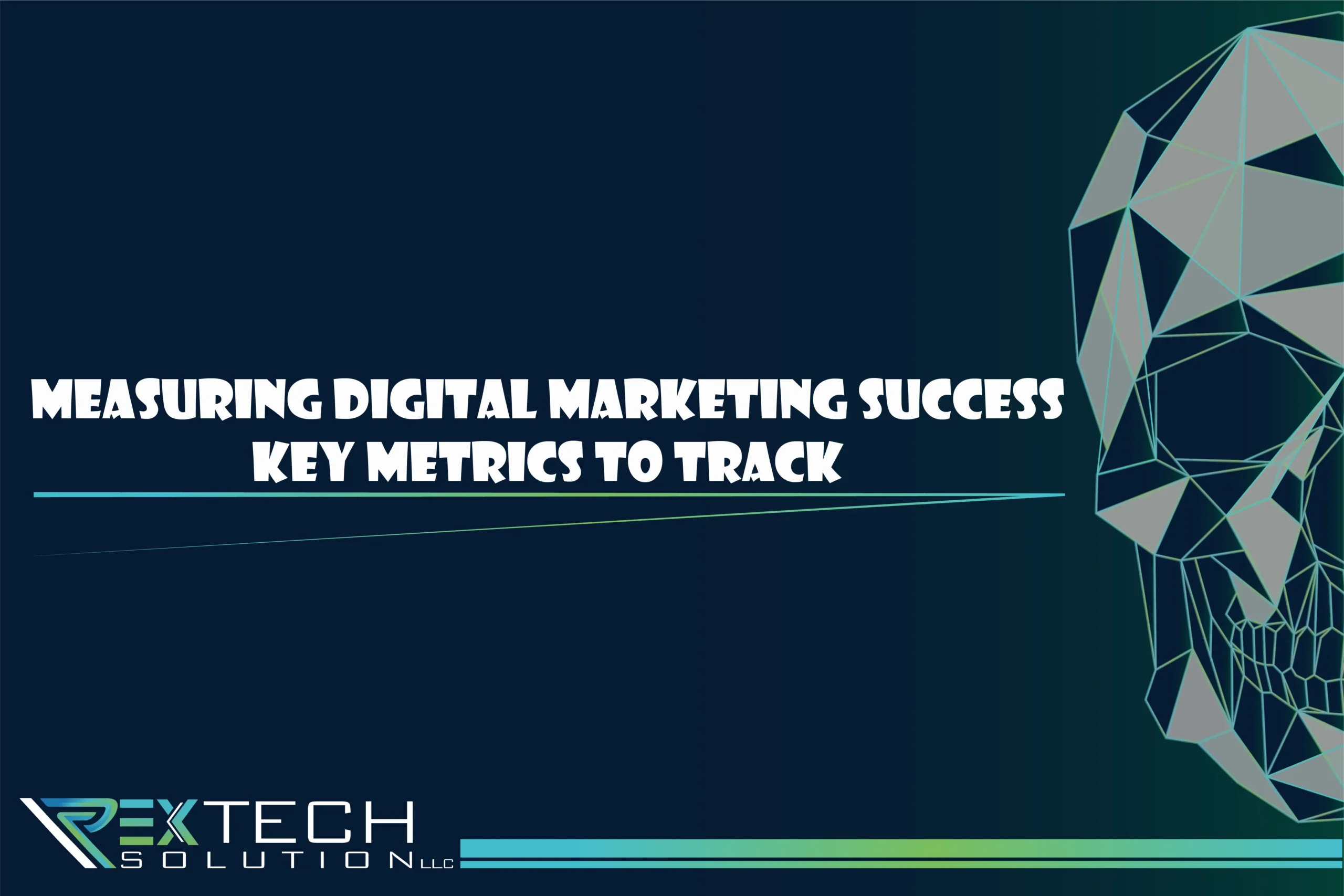In today’s fast-paced digital world, businesses heavily rely on strategies to measure digital marketing success, connect with their audience, boost sales, and enhance brand visibility. Yet, simply launching campaigns isn’t enough; evaluating their success is equally crucial. Without proper measurement and analysis, it’s tough to understand if your efforts are paying off and how to improve them. In this article, we’ll explore the key metrics that businesses should keep an eye on to gauge the success of their digital marketing endeavors.
In digital marketing, success isn’t just about likes, shares, or followers. While these metrics may look good, they don’t always translate to real business results. To truly understand the impact of your digital marketing, you need to track a range of metrics that align with your goals.
Here at RexTech Solutions, we understand the importance of accurately measuring digital marketing success. As a leading provider of digital marketing services, including logo design, branding, website development, video animation, SEO, and more, we know the value of data-driven decisions in optimizing marketing strategies for our clients.
Understanding Key Metrics
Before we dive into specific metrics, it’s essential to distinguish between vanity metrics and actionable metrics. Vanity metrics, like likes and shares, might make you feel good, but they don’t provide meaningful insights. Actionable metrics, on the other hand, help you make informed decisions to improve your campaigns.
1. Website Traffic and User Behavior
– Traffic Sources
Knowing where your website traffic comes from (organic search, social media, referrals, or ads) helps you understand which channels are most effective.
– Bounce Rate
A high bounce rate suggests that visitors aren’t finding what they’re looking for, indicating potential issues with your content or user experience.
– Conversion Rate
Tracking conversions (sales, sign-ups, etc.) gives you a clear picture of how well your website is performing in turning visitors into customers.
2. Social Media Engagement
– Likes, Shares, and Comments
While these metrics are nice to have, they don’t always indicate real engagement. However, they can still provide some insights into how your audience is interacting with your content.
– Click-Through Rate (CTR)
CTR measures how many people click on your links or CTAs, showing how compelling your content is.
– Follower Growth
While not the most important metric, tracking follower growth can help you understand the overall health of your social media presence.
3. Email Marketing Performance
– Open Rate
The percentage of people who open your emails gives insight into the effectiveness of your subject lines and sender reputation.
– Click-Through Rate (CTR)
Similar to social media CTR, email CTR shows how many people are clicking on links within your emails.
– Conversion Rate
Tracking conversions from email campaigns helps you understand their impact on your bottom line.
4. Search Engine Optimization (SEO)
– Keyword Rankings
Monitoring your website’s rankings for target keywords helps you assess your SEO performance.
– Organic Traffic Growth
Tracking the growth of organic traffic shows how well your SEO efforts are paying off.
– Backlink Profile
Analyzing your backlink profile helps you understand your site’s authority and trustworthiness to search engines.
Suggested Read: Building Brand Trust Through Authentic Digital Marketing
Conclusion
In conclusion, measuring digital marketing success requires a holistic approach. By tracking the right metrics, you can gain valuable insights into the effectiveness of your efforts and make informed decisions to improve future campaigns. At RexTech Solutions, we specialize in helping businesses achieve their digital marketing goals through strategic planning and data-driven optimization. Get in touch with us today to learn more about how we can help you succeed in the digital landscape.
Remember, the digital marketing landscape is constantly evolving, and it’s essential to adapt your strategies based on the latest trends and insights. By staying proactive and continually refining your approach, you can stay ahead of the competition and achieve long-term success in today’s dynamic digital environment.

